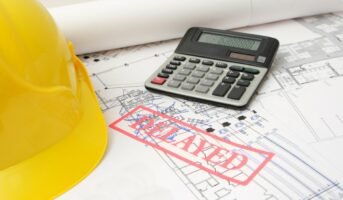In a growing real estate market, under-construction properties present excellent investment opportunities for several buyers and investors looking for higher returns. Obtaining property ownership involves several legal procedures, which must be duly completed. Property buyers, especially those investing in under-construction properties, must be vigilant when undertaking any property transaction. In several cases, homebuyers find themselves in situations where the builder has sold the same property to multiple buyers. This can not only result in legal trouble for the builder but also lead to financial difficulties for the buyer. However, legal recourse is available for the benefit of the buyers.
Legal recourse when a builder sells same property to two buyers
If a buyer who has invested in a property finds out that the builder has sold the same property to other buyers, they must have a clear understanding of the property ownership. In this case, the first buyer becomes the rightful owner of the property with their name registered on the property documents. After the property transaction and property registration in the first buyer’s name has been completed, the ownership rights are transferred to the first buyer and the seller loses all rights over the property.
In such cases, the second buyer has various options: they can either approach the civil court or file a complaint against the builder in a consumer forum. One can consult a legal professional to find the right solution and protect their rights. Buyers can also approach the state RERA and register their concerns with the authority.
The second buyer has the right to seek a refund of the amount they have given to the builder, including the interest and legal expenses.
Can a property in under-construction stage be sold?
In India, developers have the right to sell an under-construction property, provided the RERA registration and other requirements have been met. A tri-party transfer deed is required to sell the property.
- First, the seller identifies a buyer who expresses interest in buying the house.
- After finding a buyer, the seller approaches the builder.
- The builder then issues a No Objection Certificate (NOC), which states that they have no objections to selling the property to the new buyer.
- After getting an NOC, the seller and the buyer must execute a sale agreement.
- After signing the document, the seller issues a copy of the contract to the builder for their records.
- Finally, the builder updates their documents to reflect the property ownership of the new buyer.
Things to know when buying an under-construction property
- Credibility of the developer: Before investing in any property, it is essential to check the builder’s track record. Find out the number of projects they have completed and whether the projects were delivered on time with all the amenities, without defaults.
- RERA registration: According to the Real Estate (Regulation and Development) Act, all builders must register their projects with the state RERA. Buyers should find the RERA registration number and verify the project details through the official RERA website.
- Sale agreement: Buyers must review the sale deed executed between the two parties. They must check all terms and conditions, including possession date and penalties for delays.
- Pre-approved loans: It is safe for buyers to choose projects approved by leading banks. Even though it will not guarantee timely possession of the property, it will provide an additional layer of security since banks conduct thorough verifications.
- Costs: Buyers should take into account additional expenses involved in the property purchase. These include GST of 5% on agreement value for under-construction projects, stamp duty and registration charges and maintenance charges for up to two years until society formation.
Housing.com News Viewpoint
Unlike an investment in a ready-to-move-in property, buying an under-construction property may pose risks in the event that the builder defaults or sells the same property to multiple buyers. Hence, it is necessary to thoroughly check the project and the builder’s track record and make an informed decision. Buyers must clearly understand their legal rights and the RERA regulations to protect their interests if they find themselves in such scenarios.
FAQs
How to transfer an under-construction property?
An under-construction property can be transferred through a tri-party transfer deed.
What happens when the same land is sold twice?
When the same property is sold twice by the builder, it results in a legal dispute between the buyers over the rightful ownership of the property.
Can I accept cash for the sale of land?
Cash can be accepted for the sale of land. However, the income must be reported for taxation purposes.
Is GST applicable to the resale of under-construction property?
A GST of 12% is applicable on the sale of under-construction properties.
| Got any questions or point of view on our article? We would love to hear from you. Write to our Editor-in-Chief Jhumur Ghosh at [email protected] |
Harini is a content management professional with over 12 years of experience. She has contributed articles for various domains, including real estate, finance, health and travel insurance and e-governance. She has in-depth experience in writing well-researched articles on property trends, infrastructure, taxation, real estate projects and related topics. A Bachelor of Science with Honours in Physics, Harini prefers reading motivational books and keeping abreast of the latest developments in the real estate sector.












